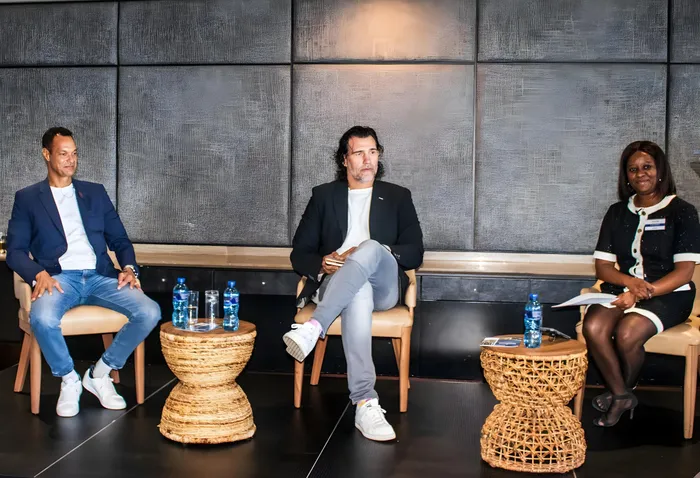How emotional intelligence helps leaders build connections across silos and distances

Acknowledging feelings is merely the first step. True connection, forged through empathy and open dialogue, is essential for aligning a team toward a common goal.
Image: Supplied.
Today’s business environment is often fragmented – both geographically and digitally, as well as across various departments. Without emotional intelligence (EQ), teams can easily fall into cycles of blame or become disconnected from one another.
Like captains uniting diverse athletes, EQ also helps corporate leaders break silos, foster collaboration and strengthen team cohesion in global or hybrid workforces. Trust fuels high-pressure sports teams, bridging differences in personality, skill or location, just as businesses must use EQ to align teams and drive success.
Business leaders must realise that EQ is not just about recognising their own emotions or those of their team; it is about connecting with each other to build trust and unity. Acknowledging feelings is merely the first step. True connection, forged through empathy and open dialogue, is essential for aligning a team toward a common goal.
Consider a logistics company racing to hit its year-end targets. The sales team is signing clients and driving business growth. Meanwhile, the operations team is under immense pressure to meet new demands, often feeling that the sales team is promising more than can be delivered. This disconnect creates silos, where each department becomes isolated in its own struggles.
Individuals working under a unified game plan
Just as sports captains guide players in distinct roles, leaders must foster transparent and empathetic communication to unify teams. In both sports and business, a cohesive strategy aligns individuals toward a shared goal – whether winning a match or delivering value to customers – while ensuring each team member takes ownership of their contribution.
Similar to how championship teams adjust their tactics mid-game, organisations must be ready to support every department when challenges arise. If operations are overwhelmed by a surge from sales, leadership must assess how best to assist, whether by redefining roles or streamlining processes to balance the workload. In both sports and business, success hinges on a game plan that every team member understands and embraces, ensuring no one carries the burden alone.
So, while taking charge of your own responsibilities is crucial, so is understanding the impact you have on your teammates. In any team with diverse roles and backgrounds, leaders must bridge the gaps between departments to form a cohesive unit.
Good leadership is about empowering others
But how can a leader practically unite people or players from various sections and diverse backgrounds? The secret lies in building trust and genuinely understanding what drives everyone. Good leadership is not about enforcing one’s will but about empowering others.
As captains build trust with their players beyond the field, so should corporate leaders forge meaningful connections with their teams. Success begins by surrounding yourself with people you trust and empowering them, which means stepping beyond traditional business frameworks to engage on a personal level.
When leaders take time to understand what drives each individual, they can tailor their approach to ensure everyone feels valued and supported. In sports and business alike, failing to foster these connections can lead to frustration, disengagement and weakened team dynamics. The strongest teams, whether in the boardroom or on the pitch, thrive when leaders cultivate trust, motivation and a shared commitment to success.
Today, many organisations operate under hybrid models with some employees working in the office while others work remotely, whether from home or even from different continents. This physical distance can sometimes create a disconnect within the team.
Thus, just as captains unite players across positions, corporate leaders must bridge gaps between remote and in-person teams. Strong communication, inclusivity and technology create cohesion, ensuring that distance does not weaken trust or morale. EQ is the key – it fosters connection, sustains engagement and aligns every team member with a shared purpose, no matter where they work.
Roland Innes, Group CEO at DYNA Training.
BUSINESS REPORT